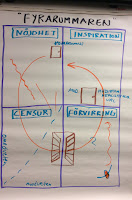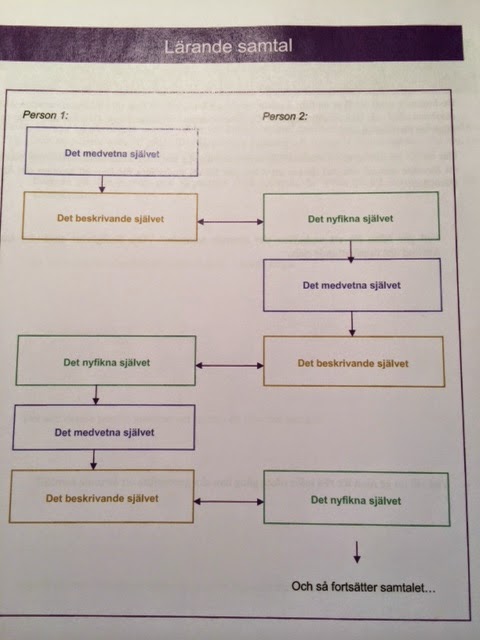Primal leadership by HBR
Via HBR on Twitter I had the opportunity to read an article called: "Primal leadership - The Hidden Driver of Great Performance", written by Daniel Goleman, Richard Boyatzis and Annie McKee.
Below quotations are directly taken from the HBR article, and here you have a PDF-version of the article from ChangeForChildren:
Below quotations are directly taken from the HBR article, and here you have a PDF-version of the article from ChangeForChildren:
We’ve known for years that emotional intelligence improves results—often by an order of magnitude. Now, new research shows that a leader’s mood plays a key role in that dynamic—a discovery that should redefine what leaders do first and best.Enjoy an assessment of the book Primal leadership via YouTube:
If a leader’s mood and accompanying behaviors are indeed such potent drivers of business success, then a leader’s premier task—we would even say his primal task—is emotional leadership. A leader needs to make sure that not only is he regularly in an optimistic, authentic, high-energy mood, but also that, through his chosen actions, his followers feel and act that way, too. Managing for financial results, then, begins with the leader managing his inner life so that the right emotional and behavioral chain reaction occurs.
A growing body of research on the human brain proves that, for better or worse, leaders’ moods affect the emotions of the people around them. The reason for that lies in what scientists call the open-loop nature of the brain’s limbic system, our emotional center. A closed-loop system is self-regulating, whereas an open-loop system depends on external sources to manage itself. In other words, we rely on connections with other people to determine our moods. The open-loop limbic system was a winning design in evolution because it let people come to one another’s emotional rescue—enabling a mother, for example, to soothe her crying infant.
We found that an alarming number of leaders do not really know if they have resonance with their organizations. Rather, they suffer from CEO disease; its one unpleasant symptom is the sufferer’s near-total ignorance about how his mood and actions appear to the organization. It’s not that leaders don’t care how they are perceived; most do. But they incorrectly assume that they can decipher this information themselves. Worse, they think that if they are having a negative effect, someone will tell them. They’re wrong.
Even though emotional skills are partly inborn, experience plays a major role in how the genes are expressed. A happy baby whose parents die or who endures physical abuse may grow into a melancholy adult. A cranky toddler may turn into a cheerful adult after discovering a fulfilling avocation. Still, research suggests that our range of emotional skills is relatively set by our mid-20s and that our accompanying behaviors are, by that time, deep-seated habits. And therein lies the rub: The more we act a certain way—be it happy, depressed, or cranky—the more the behavior becomes ingrained in our brain circuitry, and the more we will continue to feel and act that way.
That’s why emotional intelligence matters so much for a leader. An emotionally intelligent leader can monitor his or her moods through self-awareness, change them for the better through self-management, understand their impact through empathy, and act in ways that boost others’ moods through relationship management.
“Who do I want to be?”
“Who am I now?”
“How do I get from here to there?”
“How do I make change stick?”
“Who can help me?”
When we say that managing your mood and the moods of your followers is the task of primal leadership, we certainly don’t mean to suggest that mood is all that matters. As we’ve noted, your actions are critical, and mood and actions together must resonate with the organization and with reality. Similarly, we acknowledge all the other challenges leaders must conquer—from strategy to hiring to new product development. It’s all in a long day’s work.
But taken as a whole, the message sent by neurological, psychological, and organizational research is startling in its clarity. Emotional leadership is the spark that ignites a company’s performance, creating a bonfire of success or a landscape of ashes. Moods matter that much.



Kommentarer
Skicka en kommentar